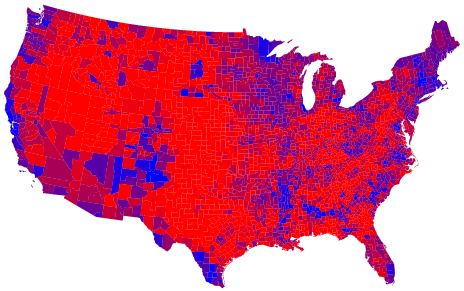It is easy to criticize Barack Obama these days. And some of us have been doing it for a while. His escalation of the war in Afghanistan is simply bone-headed. His acceptance of the Nobel Peace Prize unmasks a bipartisan warmongering. His administration is acting to cover up war crimes.
Obama’s rhetorical harshness towards bankers is belied by the fact he undermined his own negotiating position with them, the fact that he believes in them, and the fact he relies on them for economic advice even though they have only profited themselves (UPDATE: harshly phrased corrections to linked article here) and have no real plans to reduce unemployment. His handling of the economy is subject to withering criticism from both left and right.
Obama’s plans to address climate change (as well as those of Western countries generally) are a fraud. His record on civil rights is deplorable. He can’t even get it right with marijuana.
With all that and more going on, it is easy to overlook poll results showing that people are so unhappy that some 44 percent in the U.S. want George W. Bush back. Bush was heavily criticized for being “a divider, not a uniter,” but polarization seems only to have become even more extreme under Obama.
I’ve just spent my first semester in a Ph.D. program having my head filled up reading books overflowing with praise for Integrative people who will work with and accommodate their opponents. We’re supposed to be reasonable, I have been taught. We’re supposed not merely to accommodate but, as the bumper sticker says, “celebrate diversity.”
The trouble is that we’re apparently expecting to persuade our opponents in the United States of this. That isn’t happening. The irony in the framing of our present situation is that either moderates like Obama control everybody or right wing extremists like Bush control everybody and progressives simply have no hope for ever realizing a just and sustainable world.
Simply put, we need another plan. We need to confront our opponents in the U.S. just as we should the Islamist extremists overseas. We and they need to recognize that we aren’t persuading them and that they aren’t persuading us. We have what in divorce parlance would be called “irreconcilable differences.”
Russian academic Igor Panarin has been forecasting a breakup of the United States for a while:
California will form the nucleus of what he calls “The Californian Republic,” and will be part of China or under Chinese influence. Texas will be the heart of “The Texas Republic,” a cluster of states that will go to Mexico or fall under Mexican influence. Washington, D.C., and New York will be part of an “Atlantic America” that may join the European Union. Canada will grab a group of Northern states Prof. Panarin calls “The Central North American Republic.” Hawaii, he suggests, will be a protectorate of Japan or China, and Alaska will be subsumed into Russia.
Panarin gets a lot of attention from right wing bloggers, but probably nobody who actually lives in the U.S. can imagine a breakup happening quite this way. Panarin fails to grasp the political and cultural fault lines in the country and instead imagines a new grand game with surrounding and world powers vying for influence if not outright control. But nations form around identities, not around imperial pretensions. I rely on the 2004 electoral cartogram because I think that year, when we had the opportunity to throw out Bush–and didn’t, best reflects the divisions in this country:
Borders would need to be drawn something along these lines, with large chunks of mostly rural territory shown in red being given over to right wing nuttery to divvy up as they choose. I think they’d do well to divide it into three regions: 1) the Great Plains and intermountain West, 2) Texas along with the rest of the old Confederacy, and 3) the remaining area between the Mississippi River and the Appalachians. Densely populated liberal enclaves shown in blue would also likely need to be independent of each other. The San Francisco area might find a lot in common with the Portland and Seattle areas, but I suspect strains would appear between us and other areas along the Mississippi and scattered back east.
There are important problems this doesn’t solve, climate change being prominent amongst them. I can’t help but suspect that deniers are reacting against what they perceive as a liberal academic elite. As long as liberals have any influence whatsoever in a government that has power over conservatives, they will rebel. So the important idea is that none of these regions seek to control each other, because progress is impossible when we do. We need to go our own separate ways and give the disaffected alternative places to go.


Pingback: A national divorce | Not Housebroken
Pingback: The alternative to a ‘right wing nutcase’: Buying off poor whites – Not Housebroken
Pingback: The Left may be about to claim a Pyrrhic victory – Not Housebroken
Pingback: Endorsing Cascadia secession – Not Housebroken
Pingback: Pure poison – Not Housebroken